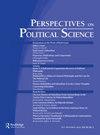Justice and Charity: An Introduction to Aquinas’s Moral, Economic, and Political Thought
Q4 Social Sciences
引用次数: 0
Abstract
The thought of St. Thomas Aquinas is an invaluable point of entry to the whole Catholic tradition, including Catholic social doctrine. But we have needed an introduction to Aquinas’s political thought in English for some time. Thomas Gilbey, O.P.’s study is over 60 years old and John Finnis’s Aquinas was as much about new natural law theory as about the Angelic Doctor. Moreover, scholars have produced a wealth of secondary literature on all aspects of Aquinas’s moral, political, and economic thought in the last quarter century. Michael Krom’s specific achievement is to have synthesized Aquinas’s writings and recent scholarship in an excellent introduction that is faithful to its subject. Both specialists and novices will profit from reading Justice and Charity. The work is organized into three parts on Aquinas’s moral, economic, and political thought, respectively. Krom uses the virtues as the organizing principle for the book. Each part is divided into two sections, the first a philosophical exposition of Aquinas’ account of natural or acquired virtues, both cardinal and secondary. The cardinal or primary virtues—prudence, justice temperance, and fortitude—are the foundation of secondary virtues, which apply them to more specific circumstances. These natural virtues are called acquired virtues insofar as we practice them through human effort alone. The second section follows with Krom’s account of the theological virtues of faith, hope, and charity and infused natural virtues. The natural virtues are called infused when we receive divine grace, which complements and strengthens human effort. Being a good Thomist, Krom never forgets that the virtues must be ordered by charity to our ultimate end, God. This manner of organization allows him to analyze distinct philosophical and theological lines of argument without separating them or confusing their interrelations. Krom differentiates the Thomistic way of thinking from philosophies prevailing in our culture, illustrating them with examples any contemporary can understand. The purpose of life is not to obtain what we happen to desire at any given moment, nor dispassionate performance of duty, but the pursuit of happiness through the practice of the virtues. He does a very fine job explaining other political forms the city of God opposes? Ogle rightly holds that “Augustine is aware of the earthly city’s constant designs on political life, but he does not concede politics to the earthly city, nor does he make the Church the new realm of politics.” But if the city of God must oppose certain political forms, like empire, does that not mean that the Church is, in some way, an implacable critic of all politics? That does not seem to be what Ogle Roberts reads Augustine as saying. Relatedly, what are we to make of situations in which a potential reader is excessively un-attached to his or her political community? Is Augustine’s rhetoric designed always to detach, or could his principles also be used to attach a reader who has been excessively alienated? In her final chapter, Ogle wants to show “what implications Augustine’s vision does have for the amelioration of our political communities.” Her answer is that, viewed from the standpoint of the earthly city, Augustine’s vision primarily issues in sub-political effects. As Ogle puts it, “conversion to a sacramental worldview bears the only hope for cultural renewal that Augustine really trusts,” one that would ground the renewal and improvement of human customs. On the level of statesmanship, “amor Dei points these men beyond the political realm, it relativizes the political horizon for them and thereby contextualizes the pressures of its customs. Significantly, it also transforms the terms upon which political decision-making is made.” As an interpretation of Augustine, this is rock solid. However, after Ogle’s boldness in facing vexed questions in the literature on Augustine’s political thought, the reader could expect an engagement with the perennial counterargument to Augustine, that the transpolitical city of God, in shifting the gaze of the best citizens to something beyond the city, also robs the city of their most vigorous energies; or, worse, that this amounts merely to the construction of another type of imaginary republic. The point is especially important in light of a concluding remark of Ogle’s: “While the pilgrim might not see the fruit of their actions, they can trust that God knows how to bring good fruit about. While any true witness to amor Dei is perpetually vulnerable to misunderstanding and condemnation, the belief that God has hidden plans for all he inspires liberates the Christian to act in hope.” What liberates the Christian to act in hope might be cause for alarm for the non-Christian who does not share the same hope. Hopefully Ogle will take up this topic in her further endeavors. In the meantime, her book makes a substantial and important contribution to our understanding of the status of politics in the thought of St. Augustine.正义与慈善:阿奎那道德、经济与政治思想导论
圣托马斯·阿奎那的思想是进入整个天主教传统,包括天主教社会教义的宝贵切入点。但是,我们需要用英语介绍阿奎那的政治思想已经有一段时间了。Thomas Gilbey, o.p.的研究已经超过60年了,John Finnis的《阿奎那》既是关于天使医生的,也是关于新自然法理论的。此外,在过去的四分之一世纪里,学者们对阿奎那的道德、政治和经济思想的各个方面都产生了丰富的二手文献。迈克尔·克罗姆的具体成就是将阿奎那的著作和最近的学术成果综合在一个忠实于主题的优秀介绍中。专家和新手都能从阅读《正义与慈善》中获益。本书分为三个部分,分别论述阿奎那的道德、经济和政治思想。克罗姆将美德作为这本书的组织原则。每一部分分为两个部分,第一部分是阿奎那对自然或后天美德的哲学阐述,包括主要的和次要的。首要的美德——谨慎、公正、节制和坚忍——是次要美德的基础,这些次要美德将它们应用到更具体的环境中。这些自然的美德被称为后天的美德,因为我们只通过人类的努力来实践它们。第二部分是克罗姆对信仰、希望、慈善和自然美德的神学美德的描述。当我们接受神圣的恩典时,自然的美德就被称为注入,它补充并加强了人类的努力。作为一名优秀的托马斯主义者,克罗姆从未忘记,美德必须以慈善为导向,以达到我们的最终目的——上帝。这种组织方式使他能够分析不同的哲学和神学论证路线,而不会将它们分开或混淆它们的相互关系。克罗姆将托马斯主义的思维方式与我们文化中盛行的哲学区分开来,用任何当代人都能理解的例子来说明它们。生活的目的不是在任何时候得到我们碰巧想要的东西,也不是冷静地履行职责,而是通过实践美德来追求幸福。他很好地解释了上帝之城反对的其他政治形式?奥格尔正确地认为,“奥古斯丁意识到世俗城市对政治生活的不断设计,但他没有向世俗城市让步政治,也没有使教会成为政治的新领域。”但如果上帝之城必须反对某些政治形式,如帝国,这是否意味着教会在某种程度上,是所有政治的无情批评者?这似乎不是奥格尔·罗伯茨读奥古斯丁所说的。与此相关的是,我们该如何理解潜在读者对他或她的政治团体过于不依恋的情况?是奥古斯丁的修辞总是被设计成超然的,还是他的原则也可以用来依附一个过分疏远的读者?在她的最后一章,奥格尔想要展示“奥古斯丁的愿景对改善我们的政治社区有什么影响”。她的回答是,从世俗城市的角度来看,奥古斯丁的观点主要体现在亚政治影响上。正如奥格尔所说,“皈依圣礼的世界观是奥古斯丁真正相信的文化复兴的唯一希望”,它将为人类习俗的更新和改善奠定基础。在政治家的层面上,“上帝之爱”指出这些人超越了政治领域,它将他们的政治视野相对化,从而将其习俗的压力置于背景中。重要的是,它还改变了政治决策的条件。”作为对奥古斯丁的诠释,这是坚如磐石的。然而,在奥格尔大胆地面对有关奥古斯丁政治思想的文献中的棘手问题之后,读者可以期待与奥古斯丁的长期反驳,即上帝的跨政治之城,在将最优秀的公民的目光转移到城市之外的东西时,也剥夺了城市最活跃的能量;或者,更糟糕的是,这仅仅是在构建另一种想象中的共和国。鉴于奥格尔的结束语,这一点尤为重要:“虽然朝圣者可能看不到他们行为的结果,但他们可以相信上帝知道如何带来好的结果。”虽然任何爱上帝的真实见证永远容易受到误解和谴责,但相信上帝对他所激励的一切都有隐藏的计划,这一信念解放了基督徒,使他们在希望中行动。”让基督徒在希望中行动的事情,可能会引起那些没有同样希望的非基督徒的警觉。希望奥格尔能在她的进一步努力中继续这个话题。 同时,她的书对我们理解政治在圣奥古斯丁思想中的地位做出了实质性的重要贡献。
本文章由计算机程序翻译,如有差异,请以英文原文为准。
求助全文
约1分钟内获得全文
求助全文
来源期刊

Perspectives on Political Science
Social Sciences-Political Science and International Relations
CiteScore
0.20
自引率
0.00%
发文量
24
期刊介绍:
Whether discussing Montaigne"s case for tolerance or Nietzsche"s political critique of modern science, Perspectives on Political Science links contemporary politics and culture to the enduring questions posed by great thinkers from antiquity to the present. Ideas are the lifeblood of the journal, which comprises articles, symposia, and book reviews. Recent articles address the writings of Aristotle, Adam Smith, and Plutarch; the movies No Country for Old Men and 3:10 to Yuma; and the role of humility in modern political thought.
 求助内容:
求助内容: 应助结果提醒方式:
应助结果提醒方式:


